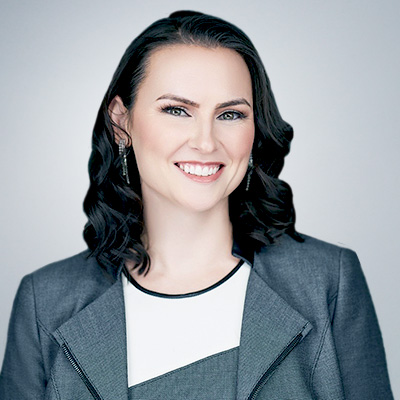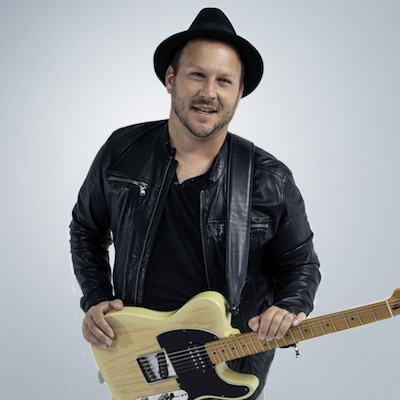What Are the Rarest Personality Types?
![]() Jim Sugel
on
June 22, 2024
Jim Sugel
on
June 22, 2024
 For millions of people, feeling like you fit in can be difficult. In fact, most of us, at some point or another, feel like we don’t fit well with everyone around us. Sometimes, that tracks down to your personality type, which often links to your complex personality traits, mental health, upbringing, and socio-economic status which contribute to stress, education, and how well you’re able to handle things. Personality tests attempt to capture snapshots of this, and can give you a broad impression of what your personality is like. And, it’s true that some traits are rarer in certain combinations than others. Sometimes, you really do have a rare personality type, or really one that’s less common than others.
For millions of people, feeling like you fit in can be difficult. In fact, most of us, at some point or another, feel like we don’t fit well with everyone around us. Sometimes, that tracks down to your personality type, which often links to your complex personality traits, mental health, upbringing, and socio-economic status which contribute to stress, education, and how well you’re able to handle things. Personality tests attempt to capture snapshots of this, and can give you a broad impression of what your personality is like. And, it’s true that some traits are rarer in certain combinations than others. Sometimes, you really do have a rare personality type, or really one that’s less common than others.
For example, if you look at the Myers Briggs Personality Test, one of the most commonly used personality tests in the world, the rarest personality still covers 1.5% of the population – or 119265000 people. That’s a big number! It also means if that’s your personality, you’d be one of three people with that personality type in a room with 300 people. Not so bad right?
So, rare personality types don’t mean you don’t fit in, they just mean you have a lower chance of meeting people who are exactly like you. And, that’s okay. Often, we get along best with people who complement us rather than exactly matching us.
So, What are Personality Types?
There are a lot of personality type systems that we use today. Myers-Briggs is the most common in business settings.
We’ll take a look at the big three here:
ABCD Type Model:
This model organizes people into four personality types:
- Type A – Competitive, perfectionist, highly motivated and organized
- Type B – Lacks ambition, relaxed, flexible in thinking
- Type C – Conscientious but struggles with expressing emotions
- Type D – Introspective and empathetic but isolating
You probably know this model from memes about Type A.
Myers-Briggs
Myers-Briggs uses 8 personality points to map people into 16 different personality types.
- Introversion (I) opposed by Extraversion (E)
- Sensing (S) opposed by Intuition (N)
- Thinking (T) opposed by Feeling (F)
- Judging (J) opposed by Perceiving (P)
The idea of this personality test (the 16 types or Myers-Briggs Personality Test / MBTI) is that everyone leans more to one or the other of the opposed personality traits. Everyone has all 8, but your decision-making and rationalization will tilt towards one or the other.
So personality types like ENFJ mean “Extraversion-leaning, Intuition-leaning, Feeling-leaning, and Judging-leaning. They don’t say anything about what other traits you have, just that on this measurement scale, you lean towards those methods.
 Five Factor/ Big Five:
Five Factor/ Big Five:
The Big Five model uses five personality traits to rank individuals on how they show those traits.
- 1 Openness to experience
- 2 Conscientiousness
- 3 Extraversion
- 4 Agreeableness
- 5 Neuroticism
This means you’re scoring on individual traits and not as a “personality”.
Of course, there are many other personality tests. DISC models are also very common. However, this gives you a good baseline for understanding what the rest of this article is talking about.
What are the Rarest Personality Types?
Rare personality types depend on the test and who’s taking it. Personality develops from attachment, social learning, learned experience, experience, and private decision-making. Further, people can score very differently on personality tests based on factors like what time of day it is, their mood, and how often they take the test.
In addition, many personality tests don’t actually score how common the type is. E.g., ABCD Type and the Big Five / Oceans tests don’t score or attach any kind of rarity to personality expressions. Often that’s good, because they aren’t measuring your whole personality, just a series of traits that you may or may not show.
Myers-Briggs does, however, measure how commonly its 16 personality types are. For example:
- INFJ – 1.5% of the population
- ENTJ – 1.8% of the population
- INTJ – 2.1% of the population
- ENFJ – 2.5% of the population
That sounds like it’s not much. Still, it means over 100 million people in every category. It also just represents that intuition-leaning and judging-leaning combinations are rare in any combination of other traits. Further, if you look at the rest of the list:
- ENTP – 3.2% of the population
- INTP – 3.3% of the population
- ESTP – 4.3% of the population
- INFP – 4.4% of the population
- ISTP – 5.4% of the population
- ENFP – 8.1% of the population
- ESFP – 8.5% of the population
- ESTJ – 8.7% of the population
- ISFP – 8.8% of the population
- ISTJ – 11.6% of the population
- ESFJ – 12.3% of the population
- ISFJ – 13.8% of the population
The scale isn’t as dramatic as calling INFJ rare might sound. Instead, it means there are about 1 INJF personality types per 9 ISFJ personality types. That’s less common, but certainly not “rare” in the truest sense of the word.
So, What Does a rare Personality Type Mean for You?
 In most cases, your personality type has little bearing on who you are as a person. Instead, it records your capabilities as measured by a test in that moment, with your mood, stress levels, and recent activity taken into account. These tests are useful for businesses because they tell businesses what you might be able to achieve in the near future and what you’re likely to be like in the near future. They can also be useful for mental health professionals to provide a baseline of your outlook, responsiveness, and mood right now. However, many personality tests will change every time you take them if you take them every day for a week. That means they aren’t reliable as a measure of who you are tomorrow or who you are next week.
In most cases, your personality type has little bearing on who you are as a person. Instead, it records your capabilities as measured by a test in that moment, with your mood, stress levels, and recent activity taken into account. These tests are useful for businesses because they tell businesses what you might be able to achieve in the near future and what you’re likely to be like in the near future. They can also be useful for mental health professionals to provide a baseline of your outlook, responsiveness, and mood right now. However, many personality tests will change every time you take them if you take them every day for a week. That means they aren’t reliable as a measure of who you are tomorrow or who you are next week.
What else? Personality tests don’t actually measure your personality. They measure how you’re feeling and how they answer the questions. They also don’t measure compatibility with others, ability or willingness to learn, or your ability to fit into a group. Instead, general interests, ability to be agreeable, ability to compromise, and ability to open up to others. Those factors, more than anything else, will determine how you’re able to connect to others.
In fact, modern science isn’t sure if it’s valid to measure personality types at all. With no clear boundaries and significant overlaps in personality types, it’s usually better to measure personality traits and then understand that, for most people, those traits go up and down based on mood, stress, and current situation. Personality is flexible, because life requires it.
Does that mean you can’t use your personality test to make judgements about yourself? Absolutely not. Your personality test is likely a reasonable snapshot of your behavior and your answers right now – providing you’re honest when you fill it in. You can also broaden the perspective of those tests by taking more assessments, looking at measures of personality traits rather than judgements of overall personality, and also figuring out how that changes or goes up and down based on things like mood. Eventually, it means you’ll have more insight into how your personality affects your life and what you are capable of – which will help you in other ways.


 Selecting the right treatment is paramount. Factors to consider include the severity of symptoms, personal preferences, and the presence of co-existing health conditions. Always consult with a mental health professional to guide this decision.
Selecting the right treatment is paramount. Factors to consider include the severity of symptoms, personal preferences, and the presence of co-existing health conditions. Always consult with a mental health professional to guide this decision.














